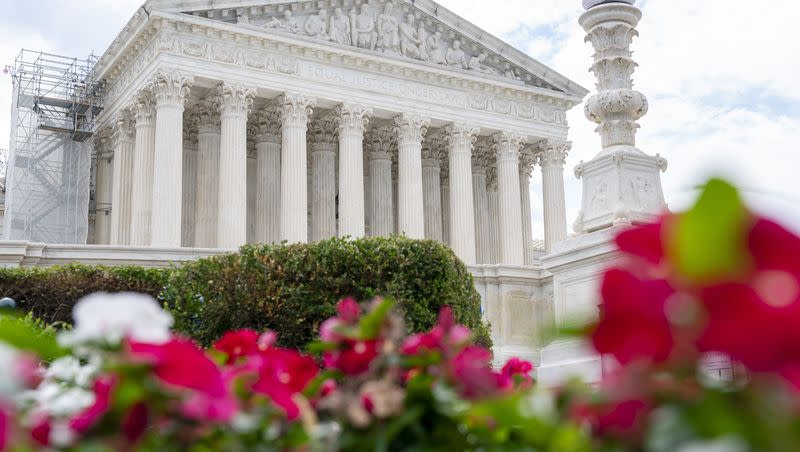How the Supreme Court ruled in a major election law case

- Oops!Something went wrong.Please try again later.
- Oops!Something went wrong.Please try again later.
- Oops!Something went wrong.Please try again later.
- Oops!Something went wrong.Please try again later.
The Supreme Court ruled 6-3 in an election law case Tuesday against a theory that state legislatures are free to set election law without interference from state courts.
The case, Moore v. Harper, considered whether the so-called “independent state legislature theory” used in North Carolina was constitutional. Under the theory, a state legislature alone can decide policy related to federal elections and can ignore state courts and constitutions. The theory was tested after North Carolina Republicans passed redistricted congressional boundaries in 2021 that critics said were gerrymandered, according to the Brennan Center for Justice.
The court ruled against the theory in a majority opinion written by Chief Justice John Roberts. In a decision that cut across ideological lines, he was joined in his opinion by Justices Sonia Sotomayor, Elena Kagan, Brett Kavanaugh, Amy Coney Barrett and Ketanji Brown Jackson.
“State courts retain the authority to apply state constitutional restraints when legislatures act under the power conferred upon them by the Elections Clause,” Roberts wrote.
In a dissent written by Justice Clarence Thomas, he said the court should not have taken the case because the initial judgement by the state court was already overturned.
North Carolina’s Republican House Speaker Tim Moore, who is named in the case, said in a statement that he was proud of the work done to pursue it to the Supreme Court.
“Ultimately, the question of the role of state courts in congressional redistricting needed to be settled and this decision has done just that,” he said. “We will continue to move forward with the redistricting process later this year.”
The ruling pleased Democrats otherwise frustrated with the conservative court’s decisions in other cases this week, including one on affirmative action.
Vice President Kamala Harris praised the Moore v. Harper decision in a statement. Harris said the court’s ruling “preserves state courts’ critical role in safeguarding elections and protecting the voice and the will of the American people,” and called on Congress to pass the John Lewis Voting Rights Advancement Act and the Freedom to Vote Act.
Sen. Amy Klobuchar, D-Minn., who chairs the Senate Committee on Rules and Administration and was part of an amicus brief last year opposing the legal theory used in North Carolina, called the decision “a victory for democracy.”
Related
“The Court in a 6-3 decision by Chief Justice Roberts joined by justices across the ideological spectrum rightly struck down this attempt to subvert the democratic process,” she said in a statement. “The Court kept in place the constitutional checks and balances that are fundamental to our democracy and rejected this radical attempt to diminish the power of voters across the country.”
North Carolina Gov. Roy Cooper, a Democrat, said in a statement he supported the decision.
“This is a good decision that curbs some of the power of Republican state legislatures and affirms the importance of checks and balances,” Cooper said.
Related
Groups in favor of the decision include the ACLU, which tweeted that the court “rejected a radical legal theory that threatened our democracy,” and the nonprofit Democracy Forward, whose president and CEO Skye Perryman said the court “rejected North Carolina officials’ anti-democratic effort to strip state courts of their ability to review congressional maps.”
“This process of checks-and-balances is key to American democracy,” Perryman said. “We are pleased at the steps the Court has taken to prevent the spread and legitimization of this dangerous legal theory by other states and rogue actors.”

